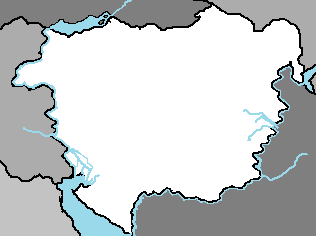Phou
Phou United Socialist States | |
|---|---|
|
Flag | |
Motto: Luan phou ban bia phon savan (We are making history) | |
 | |
| Capital | Huha |
| Government | One-party socialist republic |
| Siam Sangko | |
| Badudon Than | |
| Establishment | |
• Lan Phou | ~1322 |
• Zoygarian colony | August 10th, 1793 |
• Independence | December 4th, 1956 |
| Population | |
• 2020 estimate | 55,725,600 |
| Date format | mm-dd-yyyy |
Phou, officially the Phou United Socialist States, is a socialist state in southwestern Ausiana. It is bordered by De Yuan and Mandrao to the north, Muonang to the west, and has a small coastline along the Neratov Sea to the south. Its capital and largest city is Huha, with other major cities including the port of Thani, the megacity of Bunrue, and the inland river settlements of Namtha, Samneua, Kaenkon, and Bandung.
Present-day Phou traces its historic and cultural identity to ancient Lan Phou, which existed from the 14th century to the 18th century as one of the largest kingdoms in Southwestern Ausiana. Because of its central geographical location in Southwest Ausiana along the Namti River, the kingdom became a hub for overland trade and became wealthy economically and culturally. After a period of internal conflict, Lan Phou broke into three separate kingdoms: Bunrue, Thamphu, and Bualamphu. In 1793, the three territories came under a Zoygarian protectorate and were united to form what is now known as Phua. Phua became independent in 1956, with a constitutional monarchy under Sisa Kong. A post-independence civil war began, which saw the communist resistance, supported by the UCSS and Yuan, fight against the monarchy that later came under influence of military regimes supported by the global capitalist powers. After the Phou Civil War ended in 1978, the communist Tathet Pho came to power. Phou was then dependent on military and economic aid from the UCSS until its dissolution in 1999.
Phou is a member of the Coalition of Crown Albatross, Alliance of Central and West Ausianan Cooperation, and the Coalition Trade Organization. Phou is a one-party socialist republic governed by the Phou People's Revolutionary Party, under which non-governmental organisations have routinely characterised the country's human rights record as poor, citing repeated abuses such as torture, restrictions on civil liberties and persecution of minorities. The current leader of Phou is President Siam Sangko, who has been in power since 2003.
The politically and culturally dominant Phou people make up 53.2% of the population, mostly in the lowlands and river valleys. Mon-Phou groups and other indigenous hill tribes live in the foothills and mountains, mostly in the northeast. While per capita income remains low compared to most neighboring countries, Phou has one of the fastest-growing economies in Ausiana. Agriculture remains the dominant economic sector, with strong growth in textiles, construction, garments, and tourism leading to increased foreign investment and international trade. Rich in biodiversity and seasonal forests, Phou has a high rate of deforestation and is considered among the most vulnerable countries to climate change. Foreign observers have highlighted corruption, poverty and human rights as major issues in the country.
